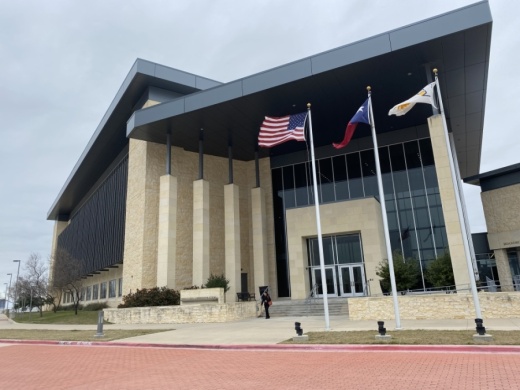“We’ll probably be doing this in chunks in determining whether or not we’re going to close the district for another set amount of time,” Waldrip said.
The district has nearly wrapped up two weeks of digital instruction, or e-learning, since first cancelling in-person instruction at a special board meeting March 15.
“We’re still looking at what the counties and the state are wanting to do in terms of school closures or going back to our normal state of business,” FISD Chief Communications Officer Amanda McCune said.
If school closures continue
Waldrip said the last day of school will remain May 28 regardless of if in-person instruction is canceled past April 3. No major changes will be made to the 2019-20 school calendar, and holidays will still be observed, he said.
The current e-learning model will continue through the rest of the school year as needed, Waldrip said.
FISD gave out around 6,000 Chromebooks for students to use at home during e-learning, Chief Technology Officer Melissa Fouche said. These Chromebooks will stay with students during the duration of e-learning, she said.
Electronic report cards were sent out this week to all students as a nine-week grading cycle recently wrapped up, Fouche said. Electronic report cards went out to around 27,000 elementary students who normally receive paper copies, she said.
With e-learning now in the mix, FISD’s curriculum instruction department is working on a new formalized grading plan, Waldrip said. The new plan will roll out soon, he said.
Resources for students during e-learning
To help students get access to e-learning assignments, FISD extended Wi-Fi coverage to 15 campus parking lots, including at 10 elementary schools, one middle school, two high schools, and the Career and Technical Education Center.
Fouche said signs have been placed in these parking lots to indicate where signals are strongest.
Beginning next week, tutorials will be available to students needing additional help with assignments through FISD’s Reaching All Innovative Learners, or RAIL, program, according to the district’s e-learning FAQ page.
“There are multiple opportunities for [students] to reach out to FISD staff on any particular topic, and even their teachers, to get that additional assistance as needed with their assignments,” McCune said.
Tutorials are in addition to teachers' virtual office hours, where teachers are available to answer questions via email. FISD’s e-learning model involves asynchronous learning, which allows for independent study at different times and locations.
Further decisions regarding the rest of the school year will be released periodically by the district, Waldrip said.
“I just think people need to know that we’re going to take this a little bit at a time,” Waldrip said. “Because we don’t know what’s going to happen with the spread of this [virus], and we don’t want to get too far ahead of ourselves.”





